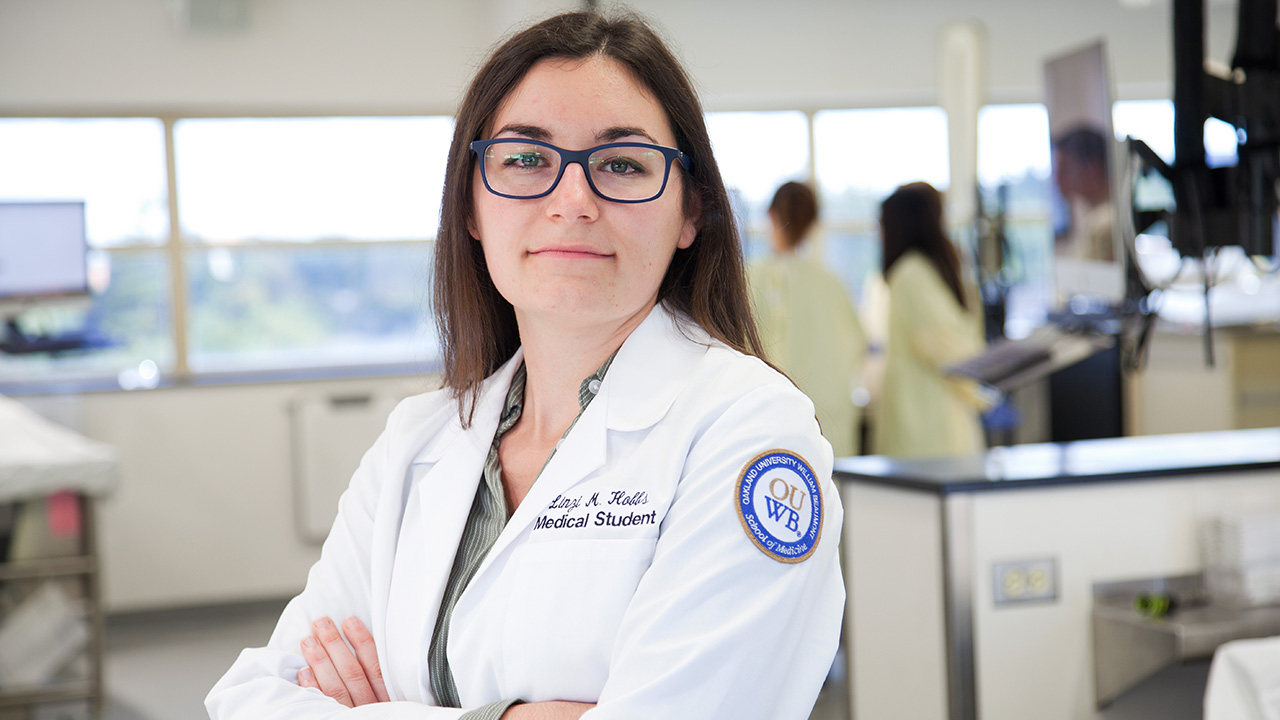- YouTube
- TikTok
OU graduate student Linzi Hobbs awarded ASH HONORS fellowship for hematology research

Oakland University graduate student Linzi Hobbs was recently awarded the prestigious ASH HONORS fellowship by the American Society of Hematology.
The award contributes to the development of the next generation of hematologists by providing research funding for first-, second-, and third-year medical students, as well as first- and second-year medical residents.
“I am excited to continue my research, thanks to the ASH HONORS award,” said Hobbs, a second-year medical student at the Oakland University William Beaumont (OUWB) School of Medicine.
In addition to a $5,000 stipend to support work on a hematology-related research project, program participants also receive a $1,000 travel allowance each year for two years to attend the ASH annual meeting.
“This award will give me the chance to share my research at the ASH conference in December and represent the Oakland University William Beaumont School of Medicine in the process,” Hobbs said.
Inspired by her grandmother’s 20-year battle with cardiovascular disease, Hobbs majored in biomedical sciences at Oakland University and pursued her undergraduate research in the lab of Dr. Randal J. Westrick, assistant professor of biological sciences, where she studied various aspects of cardiology. After being accepted to the OUWB, she opted to pursue a career in hematology.
“Through my research I have explored the field of hematology and found my true passion,” she said.
Hobbs is currently investigating whether a woman’s physiological changes over the course of pregnancy induce changes in platelets, which are essential for the blood clotting process, to make them more sticky to prevent blood loss from childbirth.
“This has the unintended consequence of making pregnant women more susceptible to developing intravascular blood clots over the course of pregnancy and postpartum, until their platelets return back to normal. This abnormal blood clotting is the leading cause of maternal deaths worldwide,” Hobbs said.
“We hope to identify some differences that occur, which can be used to change the way pregnant women are treated and prevent maternal deaths from occurring due to abnormal blood clotting. I am very fortunate to be given the chance to work with Dr. Westrick and investigate this topic.”


 June 2, 2020
June 2, 2020